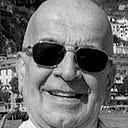IKIGAI: basta la parola
Lorenzo de’ Medici morì l’8 aprile del 1492, aveva sempre saputo che la Repubblica fiorentina sarebbe stata il suo passatempo, come lo era stata per suo nonno e suo padre prima di lui: a governarla era il suo ikigai, o quel che dà significato o motivazione per la vita a questa parola. Giapponese, in origine significava “il valore di essere vivi”, è stata poi adottata in questo senso all’inizio del Novecento. Come il danese hygge (“intimità”), ikigai è diventata una tendenza di stile di vita nei paesi anglofoni, ma è un termine più fondamentale. Il tuo ikigai potrebbe essere quello di vivere in “hygge” permanente, o potrebbe essere quello di scalare montagne e quant’altro. Si esiterebbe a dire che ikigai significa esattamente la stessa cosa di “raison d’être” (francese, “ragione di essere”); da un lato ha l’idea di una vocazione o una chiamata (e quindi più vicino a “métier” in francese), ma può anche descrivere piccoli piaceri quotidiani come bere il caffè al sole. Puoi avere solo una ragion d’essere ma, fortunatamente, più ikigai è meglio è.
@@@@@@@@@@@@@@@@@@@@@@@@@@@@@@@@@@@
Lorenzo de’ Medici, who died on this day April 8 in 1492, had always known that the Florentine Republic was to be his plaything as it was his grandfather’s and his father’s before him: to rule it was his ikigai, or whatever gives your life meaning or motivation. A Japanese word, it originally meant ‘the value of being alive’, and was then adopted in this sense at the beginning of the twentieth century. Like the Danish hygge (roughly, ‘cosiness’), ikigai has of late become a lifestyle trend in anglophone countries, but it is a more fundamental term. (Your ikigai might be to live in permanent hygge, or it might be to climb mountains and whatnot.) One would hesitate to say that ikigai means exactly the same thing as raison d’être (French, ‘reason to be’); on the one hand it has the idea of a vocation or calling (and so closer to métier in French), but it can also describe small daily pleasures such as drinking coffee in the sun. You can have only one raison d’être but, happily, the more ikigai the merrier.
